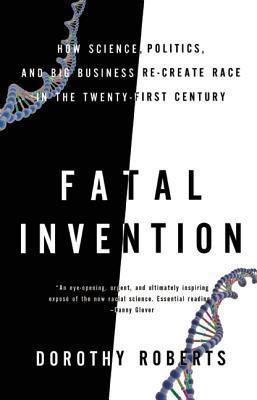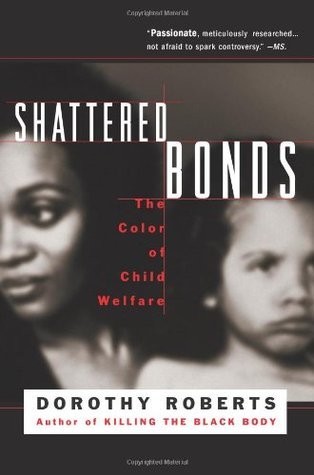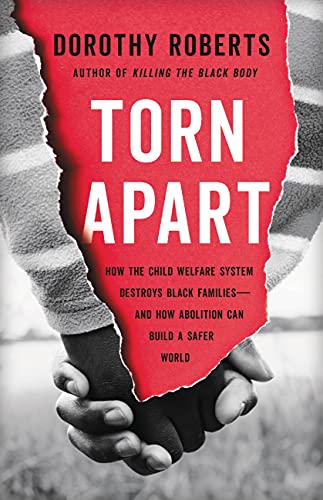Dorothy Roberts

Fatal Invention: How Science, Politics, and Big Business Re-create Race in the Twenty-first Century
Dorothy Roberts
A decade after the Human Genome Project proved that human beings are not naturally divided by race, the emerging fields of personalized medicine, reproductive technologies, genetic genealogy, and DNA databanks are attempting to resuscitate race as a biological category written in our genes. In this provocative analysis, leading legal scholar and social critic Dorothy Roberts argues that America is once again at the brink of a virulent outbreak of classifying population by race. By searching for differences at the molecular level, a new race-based science is obscuring racism in our society and legitimizing state brutality against communities of color at a time when America claims to be post-racial.Moving from an account of the evolution of race—proving that it has always been a mutable and socially defined political division supported by mainstream science—Roberts delves deep into the current debates, interrogating the newest science and biotechnology, interviewing its researchers, and exposing the political consequences obscured by the focus on genetic difference. Fatal Invention is a provocative call for us to affirm our common humanity.

Shattered Bonds: The Color of Child Welfare
Dorothy Roberts
Shattered Bonds is a stirring account of a worsening American social crisis--the disproportionate representation of black children in the U.S. foster care system and its effects on black communities and the country as a whole. Tying the origins and impact of this disparity to racial injustice, Dorothy Roberts contends that child-welfare policy reflects a political choice to address startling rates of black child poverty by punishing parents instead of tackling poverty's societal roots. Using conversations with mothers battling the Chicago child-welfare system for custody of their children, along with national data, Roberts levels a powerful indictment of racial disparities in foster care and tells a moving story of the women and children who earn our respect in their fight to keep their families intact.

Killing the Black Body: Race, Reproduction, and the Meaning of Liberty
Dorothy Roberts
This is a no-holds-barred response to the liberal and conservative retreat from an assertive, activist, and socially transformative civil rights agenda of recent years--using a black feminist lens and the issue of the impact of recent legislation, social policy, and welfare "reform" on black women's--especially poor black women's--control over their bodies' autonomy and their freedom to bear and raise children with respect and dignity in a society whose white mainstream is determined to demonize, even criminalize their lives. It gives its readers a cogent legal and historical argument for a radically new , and socially transformative, definition of "liberty" and "equality" for the American polity from a black feminist perspective.The author is able to combine the most innovative and radical thinking on several fronts--racial theory, feminist, and legal--to produce a work that is at once history and political treatise. By using the history of how American law--beginning with slavery--has treated the issue of the state's right to interfere with the black woman's body, the author explosively and effectively makes the case for the legal redress to the racist implications of current policy with regards to 1) access to and coercive dispensing of birth control to poor black women 2) the criminalization of parenting by poor black women who have used drugs 3) the stigmatization and devaluation of poor black mothers under the new welfare provisions, and 4) the differential access to and disproportionate spending of social resources on the new reproductive technologies used by wealthy white couples to insure genetically related offspring.The legal redress of the racism inherent in current American law and policy in these matters, the author argues in her last chapter, demands and should lead us to adopt a new standard and definition of the liberal theory of "liberty" and "equality" based on the need for, and the positive role of government in fostering, social as well as individual justice.

Torn Apart: How the Child Welfare System Destroys Black Families—and How Abolition Can Build a Safer World
Dorothy Roberts
An award-winning scholar exposes the foundational racism of the child welfare system and calls for radical change Many believe the child welfare system protects children from abuse. But as Torn Apart uncovers, this system is designed to punish Black families. Drawing on decades of research, legal scholar and sociologist Dorothy Roberts reveals that the child welfare system is better understood as a “family policing system” that collaborates with law enforcement and prisons to oppress Black communities. Child protection investigations ensnare a majority of Black children, putting their families under intense state surveillance and regulation. Black children are disproportionately likely to be torn from their families and placed in foster care, driving many to juvenile detention and imprisonment. The only way to stop the destruction caused by family policing, Torn Apart argues, is to abolish the child welfare system and liberate Black communities.